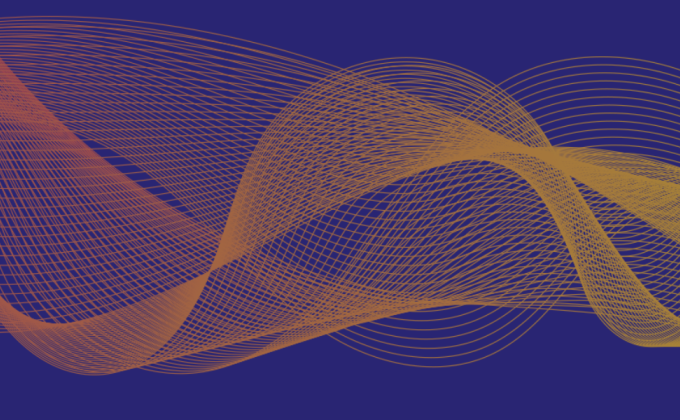On 16 December The Morocco Institute in partnership with ICCT hosted the expert meeting “Political Transition and Stability on the Borders of the Union: Morocco and North Africa”. The meeting brought together over 40 academics, practitioners and policymakers with specific knowledge of transitional processes in volatile environments and specialists with in depth regional expertise particularly in relation to the Moroccan and North African case.
It is a crucial time to examine transition processes in the region and to question whether a smooth transition into more openness and freedom poses less of a security risk compared to the more risky sudden and “revolutionary” changes taking place in for instance Libya. Not only because a chaotic situation arising from the remnants of a political system in collapse can be hijacked by violent actors but also because the combination of the availability of weapons, absence of an adequate performing security sector and insufficient political guidance can enable illegal actors to fill the vacuum.
Mr. Paolo De Mas, Director, Morocco Institute, opened the meeting. In his remarks he spoke of the importance of the Moroccan community within the Netherlands and the need for close relations and cooperation between both countries. The aim of this meeting, he said, was to examine Morocco, her government and culture objectively and to look at the changes that have taken place there since the beginning of the so-called “Arab Spring” in early 2011. This is necessary as, in the media at least, Morocco has been overshadowed by events in neighboring countries Egypt, Libya and Tunisia.
The revolts in Egypt, Libya, Tunisia and to a much lesser extent in Morocco, championed the need for greater public freedom in place of oppression with protestors demanding “the fall of the system”. In Morocco the people also agitated for greater sovereignty however, the Movement of 20 February called for reform of the political system and certainly not the outright dissolution of the monarchy. In contrast to its neighbours, the Moroccan regime responded rapidly to mass demonstrations and in the face of growing discontent King Muhammad VI issued a number of constitutional reforms with the first general elections scheduled in November this year. Dr. Mohammed Benhammou, President of the Moroccan Center of Strategic Studies, spoke about the democratic reforms begun in Morocco in the late 1990s and he likened these to the fall of the Berlin wall – with greater social freedom for women, Berbers and Islamists than ever before.
Dr. Michael Willis, University Research Lecturer and King Mohamed VI Fellow in Moroccan and Mediterranean Studies, Oxford University, acknowledged the reforms begun in Morocco. He noted that at the outset of the Arab Spring, Morocco was considered to be one of the more liberal countries in North Africa, now however this may be less so as much of the political power still resides with the King. Mr. Willis hoped that the reforms initiated throughout the last decade will not be the end of the chapter – but the beginning.
Dr. Roel Meijer Senior Research Fellow, Clingendael and professor in history of the Middle East at Radboud University, spoke about the political parties and movements in Tunisia, Egypt and Libya compared to Morocco. He noted that although there are some comparisons the actors in each country are extremely complex. In each of the states there will be similarities but the complexities of the movements and their make up will make any similarities minimal. In the afternoon the meeting broke up into specialized seminars. Mr. Paolo De Mas chaired the first session which examined Morocco in depth compared to neighboring states. The glaring difference between Morocco, and Egypt, Libya and Tunisia is the transition process: Morocco’s has been markedly smoother than the turmoil witnessed elsewhere in the region, with all the risks involved. The second session chaired by Mr. Luc van de Goor, Head of Conflict Research Unit, Clingendael, examined security sector reform in Morocco and North Africa. Participants recognized both the local and international dimensions of the security sector in Morocco and noted that should reform take place, it should be done in parallel with the reform of the political system and developed by the people themselves. A final word of warning was noted that disappointment and underlying grievances with the dividend of change and the “revolution” in North Africa might spark unforeseen reactions, lead to radicalization and increase the attractiveness of radical groups. It is therefore in the interest of all actors, including the EU, to make sure that the effect of change is visibly delivered in order to help prevent radicalization. The final session chaired by Mr. Ernesto Braam, Strategic Policy Advisor Middle East and North Africa, Netherlands Ministry for Foreign Affairs, examined the role of external actors and particularly the implications of the Arab Spring for the EU. Participants noted that support should not just be words and rhetoric. Concrete steps that could be taken include granting North African countries greater market access to help bolster their economies during the difficult period of transition. Ultimately all actors in the region should work hard to understand the new structures emerging in North Africa and build their knowledge of actors on the ground.



